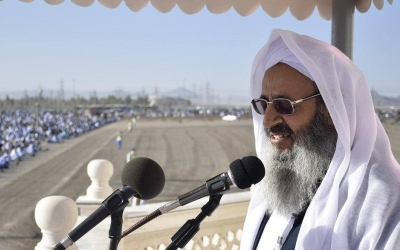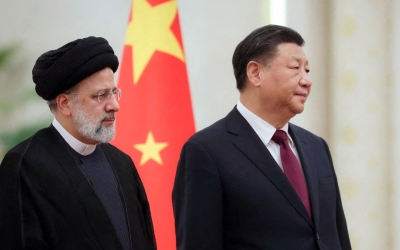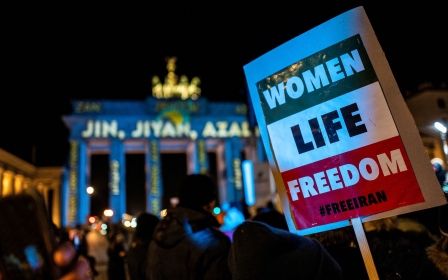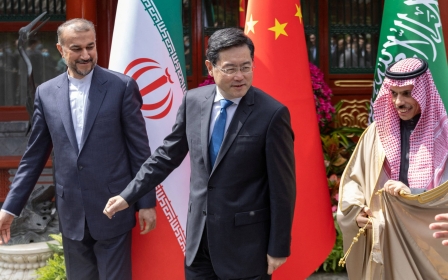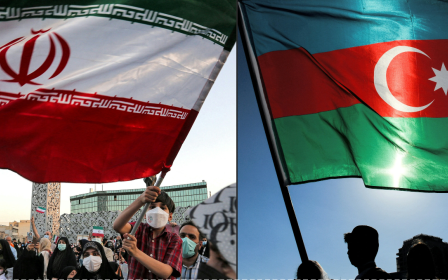Iranian press review: Women banned from stadium in Badar Anzali
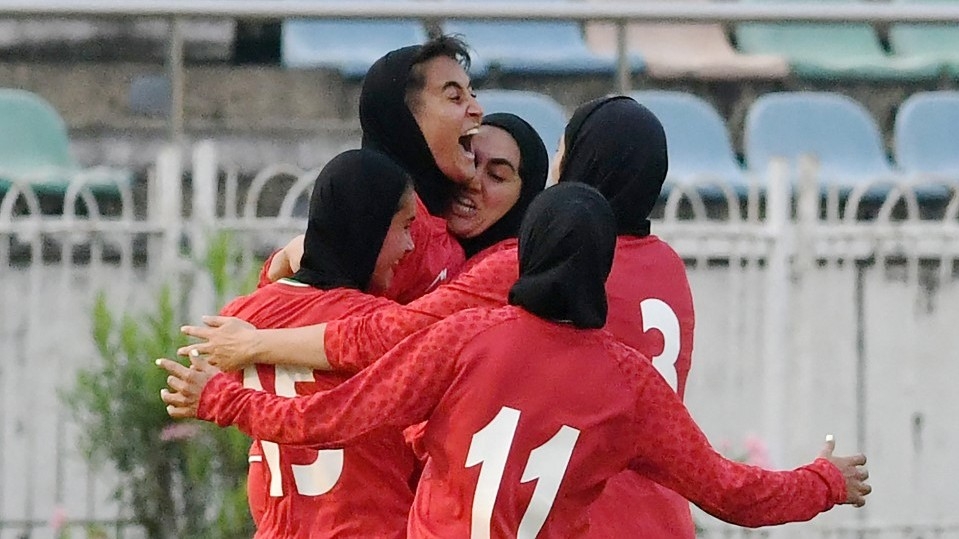
Women banned from stadium in Badar Anzali
The Iranian football club, Malavan FC, from the port city of Bandar Anzali, apologised to its female supporters for being unable to let them watch the games in their home stadium, despite a public invitation for women they had announced in March.
On 14 April, the club's public relations office posted a statement on Twitter saying that the country's national football federation had banned Malavan FC from selling tickets to women supporters for a match against another team from Tabriz.
"Despite the permission issued by the provincial sports offices and security organisations, the football federation refused to issue permission for accepting women in the stadium," the statement said.
Malavan FC also rejected the football federation's reports that said football stadiums outside the capital Tehran did not have the potential to host female fans.
New MEE newsletter: Jerusalem Dispatch
Sign up to get the latest insights and analysis on Israel-Palestine, alongside Turkey Unpacked and other MEE newsletters
"Malavan FC underlines that the club has provided all the infrastructures for the presence of women in Sirous Ghayeghran Stadium, and the club will continue its attempts to obtain permission to admit all fans, both women and men," added the statement.
President Ebrahim Raisi's administration has repeatedly vowed to open the doors of football stadiums to female fans.
The latest promise was made on 19 April, when Sports Minister Hamid Sajjadi vowed to "prepare the conditions" for admitting female football enthusiasts to Tehran's Azadi stadium for a match between two football teams from the capital.
Despite these promises, Iranian female football fans have only been allowed to enter stadiums on rare occasions and in matches where Iran's national football team plays against other teams.
The unwritten ban on Iranian women spectators is being enforced while the authorities permit foreign women to watch football matches inside the stadiums.
In February, the sports authorities banned Iranian women from attending a match between Isfahan's Sepahan and Zenit St Petersburg, while Russian women were allowed to enter the stadium.
Baluch Quds Day protest
Baluch protesters in Iran seized the opportunity of Quds Day, a pro-Palestinian event, to raise awareness about the increasing pressure being exerted on their ethnic group and their religious leader, Molavi Abdolhamid, by comparing their situation to that of the Palestinians living under occupation.
On 14 April, after the Friday prayer sermon delivered by Abdolhamid at the Makki Grand Mosque in Zahedan, the capital of the Sistan and Baluchistan province, Baluch demonstrators took to the streets to hold an anti-establishment protest.
Since 30 September, Baluch people have been protesting after every Friday prayer in Zahedan and other cities in the province.
On the last Friday of Ramadan, described as Quds Day by Iranian authorities, Baluch protesters hold placards comparing themselves to Palestinians and the Iranian authorities to the occupation forces in Palestine.
A photo that circulated widely on Farsi social media showed a Baluch man holding a handwritten placard that read, "Makki Mosque is Iran's Al-Aqsa Mosque; on Bloody Friday, there was no Zionist here."
In Iran, 30 September is known as Zahedan's Bloody Friday due to the security forces and Islamic Revolutionary Guard Corps (IRGC) officers' attacks on protesters, which resulted in the deaths of over 80 people.
A Baluch activist posted a video on Twitter showing a man in traditional attire writing a slogan on a wall that reads, "Fridays in Baluchistan are bloodier than Quds."
China's investment in Iran plummets
According to a report in the Iranian business daily Donya-e Eqtesad, China's investment in Iran has plummeted over the past three years, despite widespread propaganda about strengthening economic relations between the two nations.
Following the signing of a 25-year cooperation agreement between China and Iran in 2021, China's investment in Iran was expected to increase significantly.
The newspaper's sources revealed that China's investment in Iran was expected to reach $400bn through the agreement, which included $280bn in investment for Iran's oil, gas, and petrochemical sectors, and $120bn in upgrading the country's transport and manufacturing infrastructure.
However, according to the report, China's investment in Iran has since collapsed by 98 percent due to increasing international sanctions, political instability, and the lucrative markets that Iran's neighbouring countries offer to China.
In 2019, China invested $3.1bn in Iran, but in 2021 the value of all deals the two countries signed stood at $57m, the daily wrote.
The business daily emphasised that stability is a crucial factor in attracting foreign investors, who are reluctant to face the risk of new sanctions or worsening political ties between Iran and other countries in the region.
Even if the sanctions were lifted and Iran's relations improved with other countries, there would still be a risk of reimposing sanctions, making it challenging to attract investors.
The report concluded that attracting foreign investment requires creating a stable political and economic environment that can provide security and predictability for investors.
*Iranian press review is a digest of news reports not independently verified as accurate by Middle East Eye.
Middle East Eye delivers independent and unrivalled coverage and analysis of the Middle East, North Africa and beyond. To learn more about republishing this content and the associated fees, please fill out this form. More about MEE can be found here.


